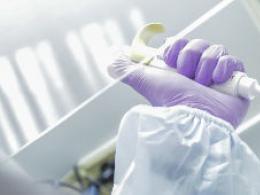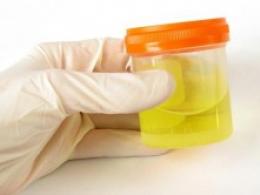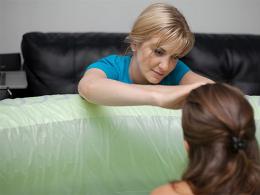Using ammonia to clean windows. Making a streak-free window cleaner with your own hands
When purchasing the right window cleaner, you often have to make a trade-off between efficiency, added shine, and streak-free. This can be avoided if you prepare such preparations with your own hands. Don't underestimate the power of common household chemicals. It can give a result that is superior in quality to expensive finished products, you just need to learn how to properly combine the components and strictly adhere to the recommended dosages. An additional advantage of homemade preparations is the fact that they are absolutely safe for the atmosphere in the house and the environment.
Secrets to keep windows clean longer
To keep windows clean, you need not only to regularly and correctly use glass washing liquid, but the following recommendations will give a good result:

- Windows will retain their original cleanliness for a long time and will please with brilliance if they are wiped from time to time with lightly salted water.
- Few of the housewives add starch to the compositions prepared by their own hands. Contrary to popular belief, glass does not have a perfectly smooth surface, and it is this component that gently cleans all the nicks, preventing the formation of stubborn stains.
- Vegetable oil will give additional shine to the surface. It is necessary to apply a few drops on a soft cloth and carefully spread over the glass.
- There is a special composition that is not used for washing glasses, but to prevent their rapid contamination. Dilute two tablespoons of glycerin with a spoonful of water, add a couple of drops of ammonia and shake well. The mixture, applied to the windows in a thin even layer, not only repels dust and dirt, but also prevents the glass from freezing in winter.
- If you add a few drops of essential oil to your homemade glass cleaner, this will not only provide a pleasant aroma in the room, but also reduce the likelihood of streaks on a transparent surface. With ready-made products, you should not experiment like that!

Recipes for effective and safe glass cleaners
Ready-made window cleaner can be easily bought at any hardware store, but no industrial product will give such a result as one of the following do-it-yourself mixtures:

- Liquid for washing glasses of increased intensity of action. For a quarter cup of vinegar, we need the same amount of technical alcohol, a tablespoon of starch and two glasses of cool water. First, pour the starch into the bottle, then fill in all the liquid components and screw the spray tip. Before each use of the product, the bottle must be shaken, evenly distributing starch particles. The mass is sprayed on the surface of the glass and washed with a cotton napkin.
- Starchy liquid for cleaning very dusty windows. We take no more than a tablespoon of starch per liter of cool water. Mix the ingredients and shake the container thoroughly. We distribute the product on problem areas and wash it with a napkin. Starch can be replaced with tooth powder or chalk.
- Lemon mix. With your own hands, you can make a tool that will simultaneously clean the glass and fill the room with freshness. To do this, we dilute two tablespoons of lemon juice (but not acetic acid) in 1-2 glasses of water and use it for its intended purpose. The amount of liquid depends on the degree of contamination of the glass. To treat stubborn stains, you will need a more concentrated composition.

- Cleaner for very dirty glasses. If you first need to wash a dense layer of dirt from the surface, then you need to mix a tablespoon of ammonia and vinegar in a glass of water. We generously apply the product to the glass and literally wash off the dirt with it.
- Those who love the presence of soap foam on the glasses can prepare a product with their own hands that will dissolve even the greasy stains characteristic of the kitchen and will not leave streaks after that. In two glasses of water, mix two tablespoons of vinegar and half a teaspoon of liquid soap. Spray on a transparent surface, rub and rinse.
- You can get rid of traces of paint or felt-tip pens on glasses if you prepare a soda solution. Pour a quarter cup of soda into two liters of water, shake and add four tablespoons of vinegar. We apply the product on the dense side of the household sponge and three pollution. Then we wipe off the remnants of the product with a soft cloth.
- Few people know that tea infusion saves from dirt on glasses. Do not be afraid that such a tool will cause the appearance of a dark coating on a transparent surface, it is easily washed off completely. In a cup of strong tea, you need to dilute three tablespoons of vinegar. The finished mixture is sprayed onto problem areas and immediately wiped with a dry cloth. Do not wait until the mass dries, this can complicate the work.
Homemade window cleaners are not only a significant savings for the family budget, but also a guarantee of a positive result, the absence of allergies in households, and the ability to remove stains of any degree of complexity.
There are several effective ways to do this, for example, using detergents. Which ones and how? Let's figure it out together. But first I would like to note that it is best to apply these products to glass with a washcloth, rubbing the liquid over the entire surface or area.
Ammonia
One tablespoon of ammonia is added to a liter of warm water, which is used for cleaning. Washing windows with ammonia will not only wash the glass, but will also give it an amazingly crystalline shine.
Ammonia  Laundry soap
Laundry soap  Potassium permanganate
Potassium permanganate
Laundry soap
Folk remedies for cleaning windows are presented in a wide variety, but this is the simplest and most effective. The soap is rubbed on a grater with small chips, placed in a vessel, poured with a small amount of warm water and stirred until foaming. The finished product is applied to the surface that requires cleaning.
Potassium permanganate
Just one drop of potassium permanganate makes the water pinkish. Just one liter of such water allows you to wash a large number of glasses, both window and furniture or any other.
Salt or vinegar
A solution of salt or vinegar not only removes dirt from transparent surfaces, but also gives them a special shine. Add one of these substances to the water - literally a tablespoon per liter - and enjoy the absolute purity of your windows.
 Salt
Salt  Vinegar
Vinegar  Chalk mortar
Chalk mortar
Chalk mortar
2 tablespoons of chalk crumbs are dissolved in one liter of water. This mixture is the ideal solution for the fight against heavy pollution.
Mister Muscle and other dishwashing gels
The simplest and most affordable remedy for a modern hostess that does not require preparation and guarantees an excellent result. All that is needed is to spray the glass with a ready-made solution, wipe it with a washcloth until it foams, and wipe it dry.
All dish detergents work in the same way as Mister Muscle. First, the liquid is foamed with a washcloth, and then washed off.

Mister Muscle
Special window cleaners
The best solution for cleaning dirty glass. You can buy it at any store or supermarket. Apply according to instructions.
When working with most of the above products, you should take precautions using rubber gloves that protect your hands from contact with aggressive components that cause skin irritation. It is also important to remember that it is better to wash glass surfaces with gels and sprays, but not with powders that contain abrasive substances that scratch the surface and violate its integrity, thereby depriving the glass of shine. And one more thing - if you have PVC windows with a snow-white frame, in no case wash them with soapy solutions, as they contribute to the appearance of yellowness. At the end of the work, clean and.

Protect your hands from contact with aggressive components that cause skin irritation.
Traces of self-adhesive film, adhesive tape, glue and other stains on the glass
We have already figured out how to wash windows quickly and without streaks. Now we propose to consider the types of especially heavy pollution that require the same special efforts. Rather, they were required earlier. Now you will learn how to solve the problem with this or that pollution in a matter of minutes. So, follow these steps:
- Apply Mr. Muscle or any other similar product to the contamination. Also suitable for dish detergent. Important! It must be a gel. Do not use powders, as they will scratch glass surfaces, making them lusterless.
- Lather the applied product with a washcloth.
- Leave the foam on the glass for 10-15 minutes.
- Take a knife or blade and lightly scrape off the dirt.
- Wipe the surface to be treated with a newspaper or linen cloth.
- If the contamination has not completely disappeared, repeat all over again.
To avoid streaks, wash windows with ammonia. Although, not only to them, since not everyone likes his “fragrant” train and not only he copes with the trouble in the form of divorces. So, how else can you get rid of florid traces of dirt and detergents?
1. The most effective tool in the fight against stains is the alcohol-based detergent and cleaning solutions. Most often, it is possessed by special means for washing glasses.
2. The agent applied to the surface, after processing and cleaning, must be wiped dry. For this purpose, special scrapers or microfiber cloths are suitable, which can be bought in the departments of hypermarkets for auto products.
3. A crumpled newspaper can help in the fight against divorce! After cleaning, wiping with paper can achieve an incredible result. The main thing to remember is that this method should be used for the simplest glasses that are not afraid of hard materials and will not “please” with mechanical damage in the form of scratches.

Crumpled newspaper can help in the fight against divorce
As is already clear. But what to do with frosted glass? This is a more difficult, but quite feasible task, even if the surface is strewn with hundreds of children's fingerprints.
The main difficulty in cleaning a matte surface is the inability to wipe the glass dry. Even a scraper won't help. Rather, in this case, it does not fit at all, like a newspaper. But all the same microfiber and microfiber cloths will be a real salvation. But, let's look at the washing process from A to Z:
- Application to a matte surface of any of the following products:
- ammonia solution (1 liter of water + 1 tablespoon of alcohol);
- chalk solution (a glass of water + 3 tablespoons of crushed chalk);
- a special alcohol-based glass cleaner;
- vinegar solution (hot water + vinegar);
- soap solution.
- Removing dried-on stains with steam cleaners. If there are none, the stains are additionally treated with the selected solution, left for 10-15 minutes, rubbed with pressure with a cloth with a rough surface or the hard side of an ordinary washcloth for washing dishes.
- Moisture removal with microfiber cloths.
 Steam cleaner
Steam cleaner  microfiber
microfiber
Old greasy or oil stains, as well as tea and coffee stains, including glue, can be removed with acetone or alcohol! It is important that when cleaning frosted glass inserted in the doors, aggressive agents do not get on rubber and silicone seals. If this happens, the product should be washed off with plenty of clean water and wipe the surface dry. Equally important, when cleaning a matte surface, do not use products with silicone, fluorine, abrasives, excessively alkaline and acidic.
Features of washing plastic windows
Is it possible to use a window cleaning solution at home when it comes to PVC windows? It is possible, but only carefully. These windows generally need a special cleaning ritual. Proper care will ensure the safety of plastic windows functionality and presentable appearance. So, what should you pay attention to:
- If the design of the plastic window has a special coating or coating, you can not be afraid to wash them, as they are applied to the inside of the glass.
- Metal fittings, rubber seals and drainage holes need increased attention and special care:
- after washing, cleaning and drying, the fittings are lubricated with machine oil;
- the rubber seal is treated with a special silicone lubricant that prevents drying and cracking.
Clean windows are not only regular washing, removal of dirt and stains, rubbing and other procedures, but also the observance of some simple rules. Want to learn a few secrets that will help keep your windows sparkling clean for much longer? Then be careful reading the following lines:
- To prevent flies from landing on the windows, as a result of which they will stay clean longer, wipe them with vinegar after cleaning.
- A strong salt solution applied to the glass will allow the windows not to freeze longer during frost.
- Small cracks in the glass are visually removed by external treatment with colorless nail polish.
- Also, longer-term purity will be provided by treatment with a mixture of glycerin (70 ml) and water (30 ml), to which a couple of drops of ammonia are added. The dried mixture turns into a thin protective film.
A collection of products and ecological methods for washing glass, mirrors and windows.
Vinegar
Add 1/4 cup vinegar to 2 cups water and 1/2 teaspoon soap. Mix everything in a spray bottle.
Vinegar can be used to make an effective and safe "glass cleaner" that cleans perfectly and does not leave streaks. To do this, you just need to dilute two teaspoons of vinegar in 1 liter of water.
Use an vinegar solution to clean mirrors, window panes and car windows: fill a 1.5 liter plastic bottle with water, add 1 tbsp. a spoonful of vinegar and put on a spray cap.
Windows are easy to clean with ammonia or table vinegar diluted with water in a ratio of 1:5. The liquid can be sprayed on the glass, and then the glass can be cleaned with old newspapers. Windows should not be washed in direct sunlight.
Pour vinegar and warm water into a spray bottle in a one-to-one ratio. Spray glass with this solution and wipe with old newspaper.
Thus, it is good to wash car windows - vinegar has a dust-repellent effect. To get rid of fingerprints and children's hands, wipe the glass with a solution of water and lemon juice (a tablespoon of juice per liter of water).
To do this, you can use a mixture of vinegar with water or lemon juice with water. Then wipe the glass with newspaper.
Pour vinegar and warm water into a spray bottle in a one-to-one ratio. Spray glass with this solution and wipe with old newspaper. Thus, it is good to wash car windows - vinegar has a dust-repellent effect. To get rid of fingerprints and children's hands, wipe the glass with a solution of water and lemon juice (a tablespoon of juice per liter of water). Windows should not be washed in direct sunlight.
Remove cloudy deposits with a cloth moistened with ordinary table vinegar. Then wash the glass with clean water and dry it with soft paper.
Salt
And the glass is well cleaned with ordinary salt. Then just rinse well.
Salt water is well washed and a dull mirror.
To make the glass shine, you can use nylon tights as a rag, and instead of a special agent, a solution of sodium chloride. After that, wipe the window with a soft woolen cloth and dry it dry. And so that annoying flies do not stay in clean glasses, treat them with a weak solution of vinegar.
Soap solution and chalk
First, wipe dirty glass with a soft cloth dipped in soapy water, grease with a settled mixture of water and chalk (2 tablespoons per glass of water). When the glasses are dry, wipe them thoroughly with a soft cotton cloth or newspaper.
Starch
For heavily soiled windows, a solution prepared from starch (1 tablespoon per 1 liter of cold water) is suitable. After removing the dirt, wipe the windows several times with a cloth soaked in clean water and dry with a newspaper.
Glycerin and ammonia
To keep windows clean longer, after washing, wipe them with a mixture of 30 ml of water and 70 ml of glycerin, adding a few drops of ammonia.
So that the windows in the house do not fog up, you need to wipe them once every two weeks with a solution consisting of one part of purified glycerin and 20 parts of alcohol, which can be denatured. First, the glasses are thoroughly wiped with a dry cloth, and then lubricated with a portion of the mixture. This is one of the most effective ways!
Several times a year, new classes are added to our classic cleaning. One such activity is window cleaning. This process is not at all complicated, one might even say ordinary, however, for a first-class result, it is necessary to use a quality tool.
Windows need to be washed to keep them clean.
Today we would like to tell you how to produce using ammonia, as well as about the recipe for making a detergent based on it.
A few words about ammonia
Ammonia is obtained from ammonia, when diluted with water, in particular, it is a 10% ammonium hydroxide solution. The name "ammonia" is household, since this solution has little in common with alcohol.
By the way, ammonia is a completely different remedy, ammonium chloride, it looks like an odorless white powder, and is actively used as a fertilizer.
The sharp and very penetrating smell of ammonia is known to everyone. This composition is often used to give the body a certain tone, to bring people out of an unconscious state, for which it is very carefully sniffed.

Note that ammonia perfectly dissolves various acids, therefore it copes with pollution in various forms. It is also used to give the glass shine and protect them from re-contamination. To remove dirt and polish the glass, it is enough to make the right solution.
Solution preparation
To prepare the solution with which we will wash and polish windows, it is necessary to clearly maintain the proportions of the ingredients. There are several recipes for a solution to remove dirt from windows, and they are all identical in terms of effectiveness.
For washing glass and windows, we can make a solution in the following proportions:
- Recipe number 1 for washing - the solution is obtained by mixing 5 liters of water and 5 milliliters of ammonia. (Imagine how powerful ammonium solution is.)
- Recipe number 2 for polishing - to create a solution according to the second recipe, we need: 200 milliliters of water, 500 milliliters of glycerin, 5 drops of ammonia.
- Recipe No. 3 is general - to create a powerful tool suitable for both washing and polishing glasses, the dosage is as follows: 5 drops of ammonia per 200 ml of water, without glycerin.

Standard jar of ammonia
I would like to note that ammonia is still intended to bring the glass near the windows to a shine, since it copes with severe pollution with difficulty. For difficult, oily soils, use a good one. Only after the windows are washed and wiped dry does the ammonia solution come into play, which polishes the glass to a shine and prevents the windows from getting dirty quickly.
It is believed that on windows treated with ammonia, ice does not occur in the winter.
window washing
We figured out how to make window cleaner from ammonia, now let's go through the entire process of window cleaning step by step.
First of all, we collect the materials and tools necessary for the work. Our list will include:
- rubber gloves to protect hands;
- a chair or stepladder for working at height;
- a container with water, a container with a solution of ammonia;
- means for applying compositions and removing contaminants: sponges, rags, rags, newspapers;
- mop and vacuum cleaner to work with large dirt.
First we need to prepare the window, remove the curtains and disassemble the window sill. It is best to start washing windows with a vacuum cleaner, it will help remove multiple dirt and dust from the windowsill and frames.

Glass cleaning and polishing
After you have washed the frame and window sill from the detergent, you can proceed to surface treatment with a solution of ammonia. It is best to use the composition made according to the first recipe for this.
Next, we move on to the surface of the glasses, similarly washing them with detergent, wiping them, and then treating them with a solution of ammonia made according to the second recipe. Then, using a newspaper or a highly absorbent microfiber cloth, polish the surface of the glass.
There are no difficulties in using ammonia, since this is a completely good remedy. However, carefully monitor the dosage of the chemical composition, use chemicals very carefully and your windows will shine clean.
You can clean windows from dirt in various ways, but the best option is to use ammonia. This is an inexpensive solution for home use compared to expensive products, the effectiveness of which is in question. Consider how this tool can be used, and what are the main pros and cons of its use compared to other products offered for glass cleaning.
How not to clean plastic windows
Plastic windows, unlike traditional wooden ones, are more demanding on materials and cleaning tools. If you want to extend the life of PVC window structures, then you should not use the following:
- Abrasives. Metal brushes, powders, powder-type products, which include abrasive particles. These materials leave scratches on the frame, fittings, and, as a result, the design will quickly lose its presentable appearance. Please note that soda is also an abrasive, and its use can leave hard-to-remove white stains on the surface.
- Strong solvents. These are acetone, solvent-646 and similar compounds that can melt, deform plastic. Even in the absence of visible PVC defects, solvents can enter the chambers through hidden technological openings and significantly disrupt the properties of the air chambers, worsening thermal conductivity.
- Acid-containing and alkaline compounds. Household chemicals that are used to clean metal and glass surfaces. Effective against rust and plaque, such materials dissolve PVC.
- Melamine and similar sponges. Contrary to popular belief, melamine is an abrasive and therefore leaves micro-scratches on plastic surfaces.
- Products not intended for plastic.
There are many window cleaners on the market, but some of them can corrode plastic as well as solvents and acetone.
Now we know how not to wash plastic horses, so as not to cause harm.
Preparation of detergent based on ammonia
First you need to prepare tools, containers and the composition itself for work. You will need:
- A container where you will dilute ammonia with water.
- Foam rubber, sponge, soft, lint-free cloth that is comfortable to work with (sprayer when working on a large area).
- Paper, magazines or newspapers for wiping off the applied product.
- Soft cloths to remove residues of the composition from the surface to be cleaned.
- Personal safety equipment - rubber gloves, goggles, clothing, incl. polyethylene raincoats to protect the skin.
Do not forget that washing with ammonia is a contact one - you will need to remove dirt, yellowness and dust with a hand tool that you can use to get to the surface to be cleaned. Therefore, a stepladder or a sliding ladder may be required if work is carried out at a height in a private house, in an apartment with high ceilings.
Recipe #1
If we wash windows with ammonia without adding other products (for example, soapy water), then the proportion will be 5 ml (or drops) per 5 liters of running water. The resulting mixture is thoroughly mixed before use.
Recipe #2
GlycerolWith the addition of glycerin. In 200 ml of water, add 200 ml of glycerin and 5 ml (5 drops) of ammonia. Such a composition is used not only for cleaning, but also for the subsequent protection of plastic windows from spraying and ice.
Stages of work
Wash plastic windows with ammonia in the following sequence:
- Remove shutters, roller shutters, blinds.
- Remove coarse dirt, cobwebs and dust with a mop, broom and similar tools.
- Dip the sponge into the prepared solution, squeeze out the sponge and wipe the frames, window sills, slopes and other structural elements.
- Hard-to-reach places (adjacency of sashes, hinges, fittings) can be cleaned with cotton buds or toothpicks with cotton wool.
- With a new sponge (or thoroughly washed in warm water) dipped in a solution, wipe the windows from top to bottom (movements from left to right for a left-hander or right-to-left for a right-hander).
- Make sure that there are no dirty areas left on the glasses.
- Dry the double-glazed windows with newspaper or other paper. It is possible to use a clean cloth, but please note that glass polishing should be done only with dry material - after several movements, the rag or newspaper must be replaced.
- Finish washing the remaining elements - blinds, shutters, etc.
The whole procedure can be repeated several times until the glass surface and profiles are completely free of dirt. With the help of ammonia, not only dirt is removed, but also yellowness on the surface of the plastic.
Precautionary measures
Remember that with this method of washing, the following must be considered:
- Perform all work in a well-ventilated area - ensure a draft in the apartment / house, be sure to leave windows open after washing. Ammonia has an unpleasant odor - a long stay in the room can cause malaise.
- It is recommended to use a minimum set of personal protective equipment - rubber gloves, respiratory protection systems even with good ventilation of the room (respirator), eye protection goggles, a gown or other clothing that protects against chemical contact with the skin
- If liquid gets on the skin, mucous membranes, it is necessary to immediately rinse the damaged areas with running water.
- It is unacceptable to use simultaneously with the composition of various household chemicals that may contain chlorine. Lethal fumes occur as a result of a chemical reaction that is hazardous to health.
A low concentration of ammonia will not harm PVC windows, but will help to clean them and protect them from external aggressive influences - incl. from smog, carbon dioxide, mists with a high content of acids. With the help of such a tool, you can remove yellowness without significant financial costs.
Advantages and disadvantages of the method
The pluses include:
- Low price. A container of ammonia is much cheaper than specialized window cleaners of similar volume and effectiveness.
- Simple application. It does not require the use of special tools, preparatory work. You can clean windows immediately after preparing the composition. No need to prepare the solution in advance - just add a few drops to the water.
- Efficiency. Ammonia is an affordable product that effectively removes stains, dust, dirt and does not harm the plastic profile.
Flaws:
- Bad smell. Ammonia leaves a pungent odor in the room - ventilation is necessary for several hours.
- Danger to mucous membranes and skin. Be sure to use rubber gloves when working with ammonia. Ideally, use a respirator.
Is it possible to wash plastic windows with ammonia and glycerin, or is it acceptable to use a solution without it? If you only need to clean dirt from the glass and frame, then you can not add glycerin. If you decide to protect the window system from the negative effects of the environment, then it is better to use ammonia with glycerin.
Tags:






